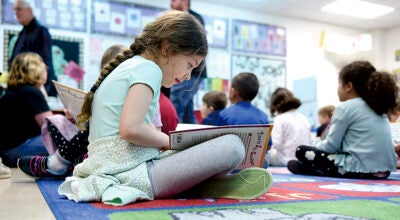Psychologist: Schools recognize importance of psychologists
Published 7:39 am Friday, November 15, 2013
By Melissa Kossoris
School Psychologist, Austin Public Schools
National School Psychologist Awareness week is Nov. 11-15, 2013. School psychologists are involved in a variety of duties within educational systems that assist students with achieving success academically, socially, behaviorally and emotionally. A primary role of a school psychologist is to collaborate with educators, parents, and other professionals in the community to create supportive learning environments as well as strengthen communications between home, school, and community settings.
The theme for National School Psychologist Awareness last year, was “Know Your Own Strengths: Discover Them, Share Them, Celebrate Them.” There is a plethora of research in positive psychology. Research has shown that “people who experience gratitude have more positive emotions, such as joy, love and happiness. They have fewer negative emotions, such as bitterness, envy and resentment; increased feelings of connectedness and improved relationships. They experience greater satisfaction with school and improved academic achievement; and even have better physical health than people who don’t take the time to notice and appreciate the good things in their lives” (www.nasponline.org).
A few ways everyone can spread the message of positive thinking and assist with discovering strengths in ourselves and others involve the actions of modeling, encouraging, sharing, and reinforcing. When we model emotions, this influences the emotions of others around us. It is wonderful to express thanks to those around you for their actions and efforts; people of all ages appreciate and need positive feedback and encouragement. Making deposits into the “emotional banks” (Webster-Stratton, 1999) of others can be done in a variety of ways, such as using kind words, giving descriptive praise (i.e. I like how you shared your toys with your brother) and providing positive attention.
It is important to encourage “gratitude” thinking by encouraging children to thank others in person or by writing a note to someone who made a difference in his/her life. Setting aside time to share gratitude with others is important as well. Identify a part of your day in which you and those close to you can talk about what you are grateful for and identify a “favorite” part of the day. It is especially important to reinforce grateful behaviors and language of children by identifying when they have participated in acts of kindness and thoughtfulness and then complimenting them on these acts.
All children and youth succeed better in school when they are healthy, supported, and receive education and encouragement that helps to develop their individual strengths. If all adults make a conscious effort to give praise, reinforcement and positive modeling to the youth in their lives we can change educational outcomes and attitudes for our entire community. Celebrate National School Psychologist Awareness week Nov. 11-15 by doing an act of kindness or expressing your gratitude to someone.





